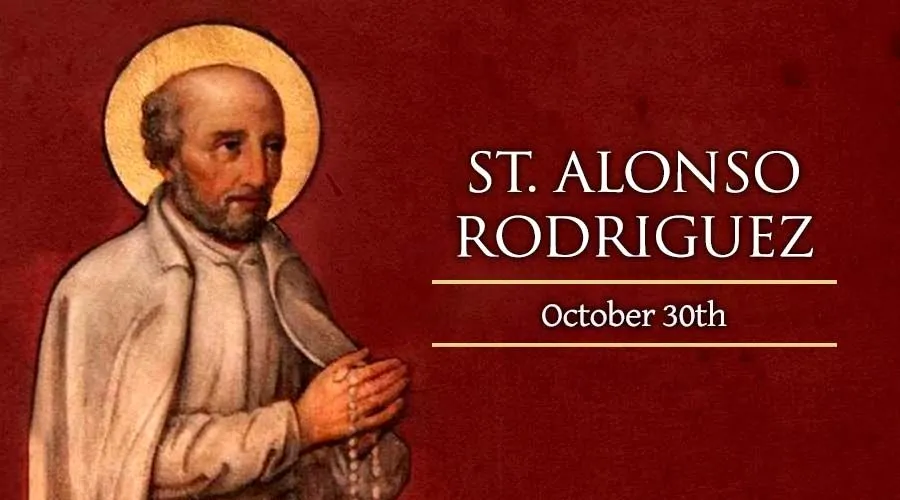Sub-Saharan Africa, 30 October, 2025 / 11:15 am (ACI Africa).
On October 30, the Catholic Church honors a man whose humble occupation gave the world only glimpses of his extraordinary holiness. During his lifetime, Brother Alonso Rodriguez never became a priest, published a book, or advanced professionally. But writings discovered after his death revealed a true mystic, who attended to a rich spiritual life while he worked as a doorkeeper and porter.
Born in Spain during 1532, Alonso married at 26 and worked as a cloth merchant, coming to religious life only through a string of crushing tragedies. His wife and two of their children died by the time he was 31, and his turn toward a life of prayer and penance could not prevent the subsequent death of his third and last remaining child -- nor the discouraging failure of his business.
Without his wife and children, and having few prospects due to his lack of a higher education, the Spanish layman turned his thoughts to religious life. Even there, however, he faced difficulties. In his early years, Alonso had met one of the first Jesuits, Bl. Peter Faber, and with his old life in ruins, he developed an interest in joining the recently established Society of Jesus.
Alonso's lack of education prevented him from pursuing their course of priestly ordination, and he failed to acquire a diploma from the College of Barcelona despite attending for two years. The Jesuit Fathers in Valencia said he was unfit to join. But Alonso's years of prayer had not been in vain: they were answered when a provincial of the society, sensing his dedication, admitted him as a lay-brother.
In modern times, Jesuit Brothers work in a wide range of fields, with few limitations apart from their lack of priestly ordination. During the 16th and 17th centuries, however, the lay-brothers of the Society of Jesus were known as “temporal coadjutors,” and assisted the priests of the order by performing its more routine duties such as cooking, construction and farming.






